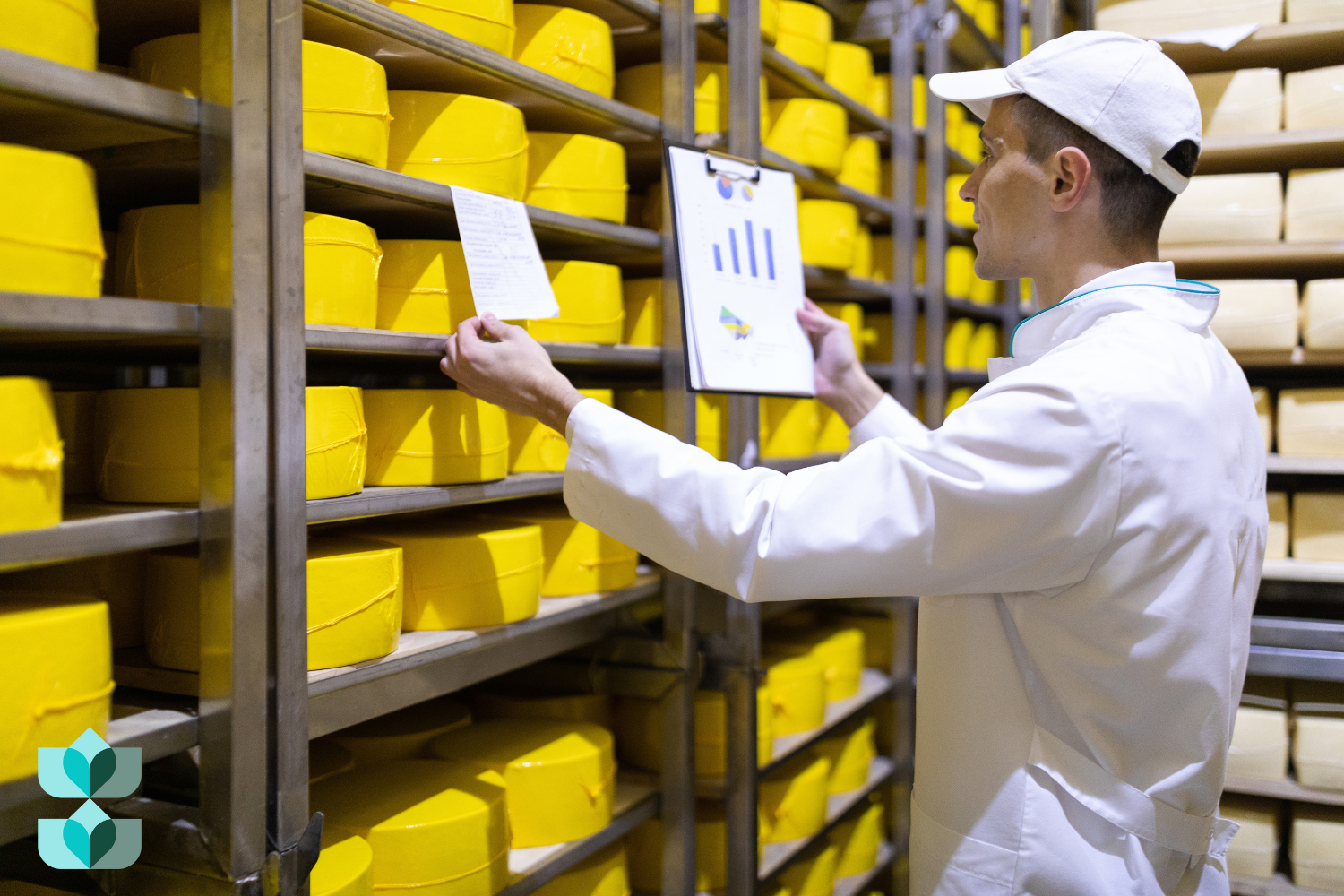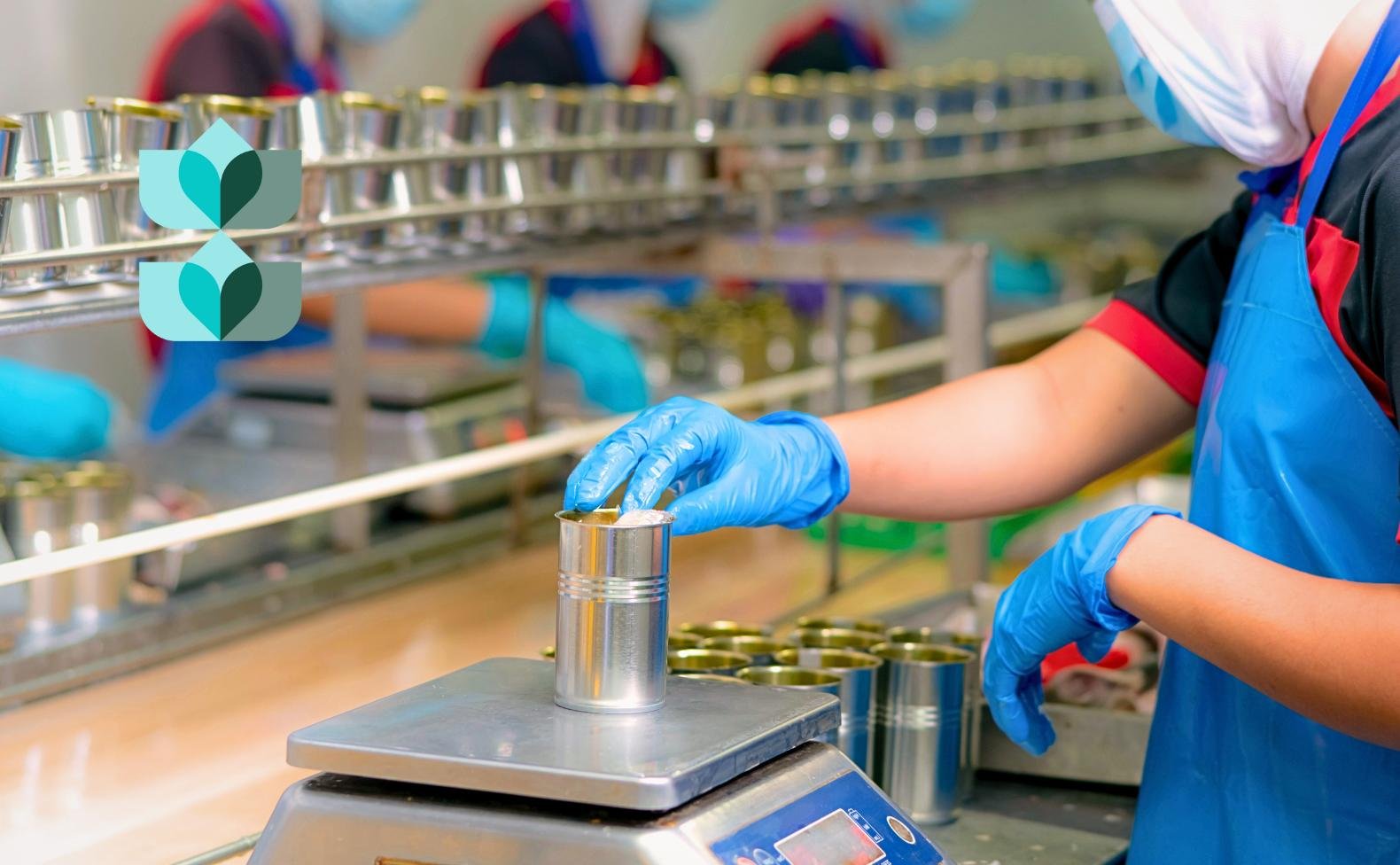Process Manufacturing involves various tools and features, all designed for taking material in its original state and turning it into something else entirely to create consumable and useable goods. Process manufacturing lies at the heart of many of inecta’s solutions’ core functionalities, so we thought offering an in-depth analysis of the practice prudent.
What Is Process Manufacturing?

In process manufacturing, the production process follows a specific recipe or formula, and the materials are combined, mixed, or transformed using various methods such as chemical reactions, heat, pressure, or fermentation. Unlike discrete manufacturing, where individual parts are assembled to create a final product, process manufacturing involves the creation of products that cannot be easily disassembled back into their original components.
Key characteristics of process manufacturing include:
Formulas and Recipes
Process manufacturers work with recipes or formulas that specify the exact composition and proportions of ingredients required to produce a product.
Batch Production
Production usually occurs in batches, where a specific quantity of the product is manufactured in one cycle or lot. This allows for better control and quality assurance.
Complex Supply Chain
Process manufacturing often involves complex supply chains, as raw materials need to be sourced from multiple suppliers and may undergo various intermediate processing steps before reaching the final product.
Process Control
Stringent process control measures are implemented to ensure consistency and quality throughout the production process. Monitoring and adjusting variables such as temperature, pressure, and ingredient ratios are critical.
Regulatory Compliance
Process manufacturers must adhere to specific regulations and standards governing their industry, especially in areas such as safety, quality, and environmental impact.
Traceability
Given the importance of quality control and regulatory compliance, process manufacturers typically implement systems to track and trace materials throughout the production process, enabling efficient recall management if needed.
Overall, process manufacturing focuses on the transformation of raw materials into finished goods through a series of interconnected processes, emphasizing efficiency, consistency, and quality control throughout the production cycle.
What Sort of Companies Need Process Manufacturing Capabilities?
.jpg?width=1580&height=976&name=Copy%20of%20Copy%20of%20Copy%20of%20Process%20Manufacturing%20ERP%20(8).jpg)
Several industries utilize process manufacturing for their production operations. Here are some examples of businesses that commonly employ process manufacturing techniques:
Chemicals
Chemical manufacturers produce a wide range of products, including industrial chemicals, specialty chemicals, fertilizers, pharmaceuticals, paints, and coatings. Process manufacturing is integral to this industry due to the complex chemical reactions and precise mixing required.
Pharmaceuticals
Pharmaceutical companies use process manufacturing to produce medications, drugs, and pharmaceutical products. This involves precise formulation, mixing, blending, and encapsulation processes, often in compliance with strict regulatory standards.
Food and Beverages
Process manufacturing is extensively used in the food and beverage industry for the production of items such as dairy products, beverages, baked goods, sauces, snacks, and confectionery. Mixing, cooking, fermentation, and packaging are key processes in this sector.
Cosmetics and Personal Care
Manufacturers of cosmetics, skincare products, soaps, shampoos, and personal care items employ process manufacturing techniques. This involves blending ingredients, emulsification, filling, and packaging to create finished products.
Oil Refining
The petroleum industry relies on process manufacturing to refine crude oil into various products such as gasoline, diesel, jet fuel, lubricants, and petrochemicals. Distillation, cracking, blending, and purification processes are central to this industry.
Textiles
Textile manufacturing involves process manufacturing for dyeing, printing, and finishing fabrics. Various chemical processes are used to achieve desired colors, patterns, and textures in textiles.
Plastics and Rubber
Manufacturers in the plastics and rubber industry use process manufacturing to produce items such as plastic components, rubber products, packaging materials, and synthetic fibers. Extrusion, molding, and curing processes are commonly employed.
Pulp and Paper: The production of paper, cardboard, and other paper-based products utilizes process manufacturing techniques. This includes pulping, bleaching, refining, and papermaking processes.
These are just a few examples, and process manufacturing can be found in many other industries where the transformation of raw materials into finished products occurs through a series of interconnected processes.
What Kind of Tools Are Utilized In Process Manufacturing?
.jpg?width=1580&height=976&name=Copy%20of%20Copy%20of%20Copy%20of%20Process%20Manufacturing%20ERP%20(5).jpg)
Process manufacturing employs various tools and technologies to support and optimize production operations. Here are some common tools used in process manufacturing:
Enterprise Resource Planning (ERP) Systems: ERP systems are comprehensive software solutions that integrate and manage core business processes such as production planning, inventory management, procurement, quality control, and sales. These systems provide real-time visibility into various aspects of the manufacturing process, enabling efficient resource allocation and decision-making. ERP systems play a significant role in process manufacturing by providing end-to-end visibility, improving operational efficiency, facilitating compliance, and supporting decision-making processes. They serve as a central hub for managing and optimizing various aspects of the production process, contributing to enhanced productivity, quality, and profitability.
Manufacturing Execution Systems (MES): MES software is designed to monitor, control, and coordinate manufacturing operations on the shop floor. It tracks real-time data, such as machine performance, material usage, and quality metrics, providing visibility into the production process. MES systems help optimize production efficiency, enforce process control, and facilitate data-driven decision-making.
Process Control Systems: Process control systems utilize sensors, actuators, and automation technologies to monitor and control critical process parameters such as temperature, pressure, flow rate, pH level, and ingredient proportions. These systems ensure that the manufacturing process operates within specified ranges, maintaining product quality and consistency.
Supervisory Control and Data Acquisition (SCADA) Systems: SCADA systems combine software and hardware to monitor, gather, and process real-time data from various equipment and sensors. They provide a centralized control and visualization platform for operators to monitor the manufacturing process and make adjustments as needed.
Laboratory Information Management Systems (LIMS): LIMS software is commonly used in process manufacturing industries to manage and track laboratory testing and quality control processes. It facilitates sample tracking, test scheduling, data management, and compliance with regulatory requirements.
Statistical Process Control (SPC) Tools: SPC tools help monitor and control the quality of the manufacturing process by analyzing statistical data. Techniques such as control charts, Pareto analysis, and process capability analysis are used to identify trends, detect deviations, and take corrective actions to maintain process stability and product quality.
Batch Management Systems: Batch management systems are employed in industries that produce products in batches, such as chemicals, pharmaceuticals, and food processing. These systems facilitate the management and tracking of batch-specific information, including recipe formulation, material traceability, and batch sequencing.
Data Analytics and Business Intelligence Tools: Process manufacturing generates vast amounts of data that can be leveraged for process optimization, predictive maintenance, and decision-making. Data analytics and business intelligence tools are used to analyze and interpret this data, providing insights for improving operational efficiency, quality control, and resource utilization.
These tools, among others, help process manufacturers streamline operations, improve productivity, ensure quality control, and enhance overall efficiency in their production processes.
The Impact of Process Manufacturing

Indeed, process manufacturing is crucial and holds significant importance in various industries. There are far too many, but here are some reasons why process manufacturing is important:
Production Efficiency: Process manufacturing focuses on optimizing production processes to achieve higher levels of efficiency. Implementing standardized and controlled processes helps streamline operations, reduce waste, and enhance productivity. This leads to improved resource utilization, cost savings, and increased output.
Consistency and Quality Control: Process manufacturing ensures consistency in the production of goods by following standardized recipes, formulas, and processes. This results in consistent product quality, meeting customer expectations, and building a strong reputation for the brand. Quality control measures are implemented throughout the manufacturing process to maintain product integrity and adhere to regulatory requirements.
Regulatory Compliance: Many process manufacturing industries, such as pharmaceuticals, chemicals, and food, are subject to strict regulatory frameworks. Process manufacturing helps ensure compliance with regulations related to safety, quality, environmental impact, and labeling. Compliance is essential for maintaining licenses, certifications, and consumer trust.
Traceability and Recall Management: Process manufacturers often need to track raw materials, intermediates, and finished products throughout the supply chain. Traceability systems and batch management enable effective tracking and recall management in case of quality issues or safety concerns. This helps mitigate risks and protect consumers.
In summary, process manufacturing is important for optimizing production efficiency, maintaining product quality, ensuring regulatory compliance, controlling costs, and driving innovation. It has a significant impact on industries, economies, and consumers by delivering consistent, safe, and high-quality products.
Employing Process Manufacturing
.jpg?width=1800&height=750&name=Untitled%20design%20(13).jpg)
Process manufacturing is an essential component of various companies that provide necessary goods across the globe. As discussed earlier in the article, one of the best ways to properly conduct process manufacturing is through a savvy ERP solution hosted by a reliable distributor. As such, inecta has been working with the food industry for many years to help them integrate personalized ERP software to help them oversee every aspect of their process manufacturing operation. Through commitment and an unwavering desire to support food businesses, inecta has become one of the industry’s most reliable providers of ERP technology powered by Microsoft. To see how the right ERP solution can drastically improve your business’s process manufacturing, click here to schedule a demo with an ERP specialist!











Free Valuable Resource!
3 simple steps to find your Food ERP
Free Valuable Resource!
3 simple steps to find your Food ERP
*We will never sell your information. Keeping your data and privacy secure is our highest concern.